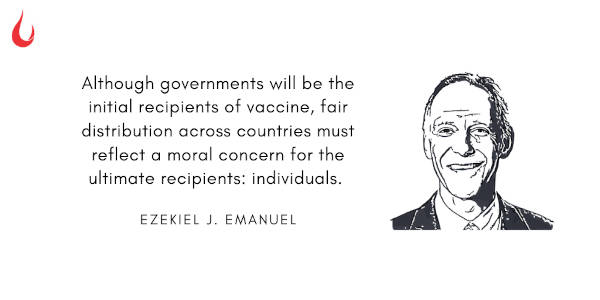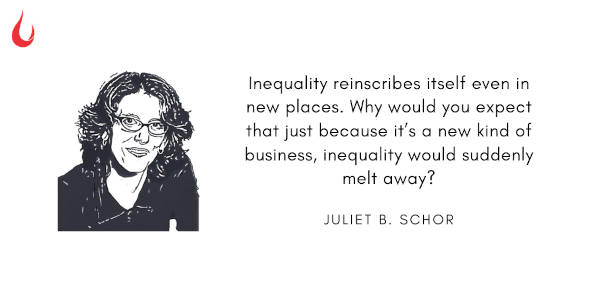[Image by Jeyaratnam Caniceus from Pixabay]
Good morning,
In his classic 1989 essay, Is There an Indian Way of Thinking?, AK Ramanujan writes that placing almost everything within some context is a distinctive Indian tendency. After all, Indians believe there are auspicious and inauspicious times; there are ragas that are to be sung in the mornings, and others in the afternoons or nights; even the morality of truth-telling is contextual. “All societies have context-sensitive behaviour and rules,” Ramanujan wrote, “but the dominant ideal may not be the ‘context-sensitive’ but the ‘context-free’”. To think in the Indian way, is to be context-sensitive.
He ended this essay with a parable from Gautama Buddha. “The Buddha (who said, ‘When we see a man shot with a poisoned arrow, we cannot afford to ask what caste he or his enemy is’) also told the following parable of the raft. Once a man was drowning in a sudden flood. Just as he was about to drown, he found a raft. He clung to it, and it carried him safely to dry land. And he was so grateful to the raft that he carried it on his back for the rest of his life. Such was the Buddha’s ironic comment on context-free systems.”
The idea is relevant today even as we debate and take positions on heinous crimes (such as Hathras). It’s also relevant as the world struggles to find an answer for what’s the best way to distribute vaccines. In this issue, we highlight a proposal that aims to find a fair answer.
Let us know what you think.
In this issue:
- What’s the right way to allocate vaccines?
- Why the future of platforms might be in co-ops
- Newton’s Third Law, revised
Note: Let’s catch up again today at 7:30 PM in the latest episode of Talkin’ ‘Bout My Generation. We have father-son duo Haresh and Shiv Chawla discussing Learning to Live a Digital Life. If you haven’t registered yet, here’s the link: bit.ly/FFTAMG
Have a great weekend.
What’s the right way to allocate vaccines?
It’s becoming increasingly clear that we are going to have neither an abundance of vaccines nor the adequate capacity to administer them to the entire population. There are debates about how to allocate and distribute them. In an essay in Science, Ezekiel J. Emanuel, Vice Provost for Global Initiatives at the University of Pennsylvania and chair of the Department of Medical Ethics and Health Policy, and his coauthors offer a framework for allocating vaccines.

Here are relevant excerpts from their essay:
“Two schemes for the international distribution of Covid-19 vaccine have been proposed.
- First, the WHO suggests that countries receive doses proportional to population in phase 1. Phase 1 begins with 3% of each country's population receiving vaccines, and population-proportional allocation continues until every country has vaccinated 20% of its population.
- The second proposal distributes vaccines to countries according to the number of frontline health care workers, the proportion of population over 65, and the number of people with comorbidities in the country. This proposal seems to prioritise protecting those judged most likely to die and preventing health system collapse due to health care workers' illness.
“To guide fair distribution of vaccines across countries, we propose the Fair Priority Model. Fair allocation must seek to mitigate future adverse effects of Covid-19. We focus on three types of harms directly or indirectly caused by Covid-19.
- First, Covid-19 kills people and causes permanent organ damage.
- Second, the pandemic indirectly harms health even for the uninfected by straining health care systems, raising mortality rates for common conditions, causing stress that harms mental health, and accelerating the spread of disease by hindering immunisations.
- Third, the pandemic has devastated the global economy, causing unemployment, economic decline, poverty, and starvation. Economics and health interact: Worsening economic conditions harm health, and a worsening pandemic harms the economy.
“The Fair Priority Model proceeds in three phases, preventing more urgent harms earlier.
- Phase 1 aims at reducing premature deaths and other irreversible direct and indirect health impacts.
- Phase 2 continues to address enduring health harms but additionally aims at reducing serious economic and social deprivations such as the closure of nonessential businesses and schools. Restoring these activities will lower unemployment, reduce poverty, and improve health.
- Finally, phase 3 aims at reducing community transmission, which in turn reduces spread among countries and permits the restoration of prepandemic freedoms and economic and social activities.”
Dig Deeper
Why the future of platforms might be in co-ops
Platform businesses such as Airbnb and Uber were seen as a better socio-economic arrangement to provide wealth and dignity to workers. No longer. Some believe they might even have worsened the inequality in the society. In an interview to Marker, Juliet B. Schor, a professor of sociology at Boston College and author of After the Gig: How the Sharing Economy Got Hijacked and How to Win It Back, says co-operative models might be an answer.

She says: “I think cooperatives are the best model out there. Those are platforms that are owned and governed by the workers. The technology, like the matching algorithms, and the rating and reputations systems, are now pretty replicable, and they allow companies to get rid of huge amounts of human management. That means that a worker-owned firm with the technology is just so much more efficient, because there’s just the workers and the technology. Why do we need these investor-owned firms? If the workers could get some access to capital, they could run these technologies themselves.
“I did what I think is the first academic study of one of them, a stock photography platform called Stocksy. It’s got, at this point, over 1,000 members, and has been successful. It was started by people with a lot of experience in the business, and they were able to attract really great artists because of the co-op feature. They pay a lot more than Getty, which is the dominant platform in the industry.
“You have co-ops in house cleaning, ride-hail, and bicycle delivery too. There’s something called Fairbnb, which is an alternative to Airbnb that puts money back into the local community. There’s a really big freelancers’ cooperative called Smart, which operates in more than 40 cities in Europe.
“These are models that are working, today, and there’s actually a lot of interest in them.”
Dig Deeper
Newton’s Third Law, revised

(Via WhatsApp)
Have you experienced social media overreaction? Tell us about it. Head to our Slack channel.
And if you missed previous editions of this newsletter, they’re all archived here.
Bookmark Founding Fuel’s special section on Thriving in Volatile Times. All our stories on how individuals and businesses are responding to the pandemic until now are posted there.
Warm regards,
Team Founding Fuel

